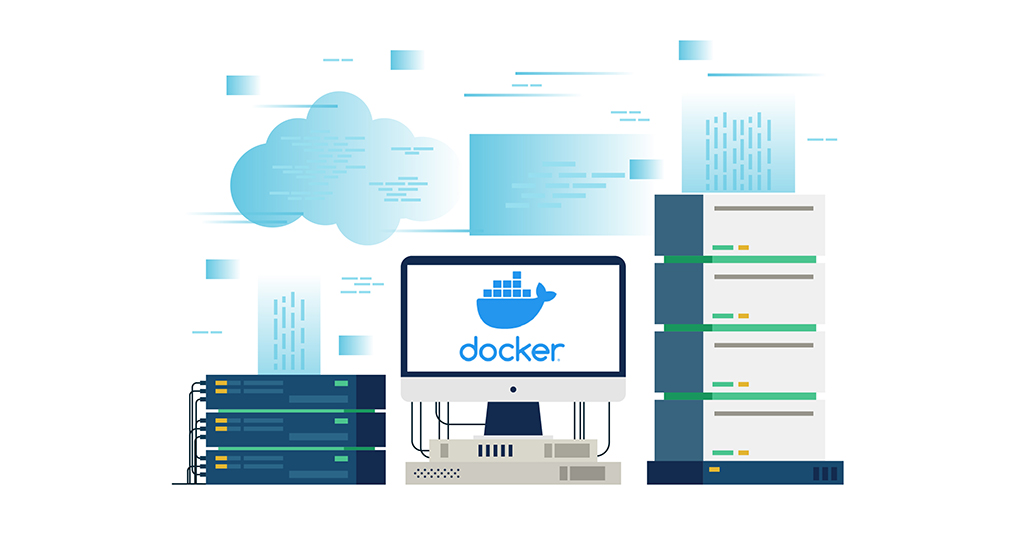Introduction: Docker has become a revolutionary force in software development, simplifying the deployment process and changing the architecture and management of programs. Its containerization technology, which gives developers a strong toolkit to construct, deploy, and operate programs smoothly across a variety of contexts, has come to be synonymous with efficiency, scalability, and portability. It’s clear that Docker’s influence will continue to influence the direction of contemporary software development as we examine its importance in software applications and the next improvements.
The Evolution of Docker:
Docker, initially released in 2013, introduced a groundbreaking approach to software development through containerization. Unlike traditional virtualization methods, Docker containers encapsulate an application and its dependencies, enabling consistent execution across various computing environments. This abstraction facilitates rapid deployment, eliminates compatibility issues, and enhances resource utilization, making Docker an indispensable asset for developers worldwide.
The proliferation of Docker has catalyzed a paradigm shift in software development practices. Developers can now package their applications with all necessary dependencies into lightweight, portable containers, thereby mitigating the notorious “it works on my machine” dilemma. Moreover, Docker’s modular architecture fosters collaboration and accelerates the development lifecycle by facilitating the seamless integration of third-party services and tools.
The Advantages of Docker in Software Applications:
Portability: Docker containers encapsulate an application and its dependencies into a single package, ensuring consistency across different environments, including development, testing, and production.
Scalability: Docker’s lightweight nature and efficient resource utilization enable applications to scale effortlessly, both vertically and horizontally, in response to fluctuating workloads.
Isolation: Docker containers provide isolated environments for applications, preventing conflicts between dependencies and enhancing security by minimizing the attack surface.
Flexibility: Docker’s modular design allows developers to compose complex applications from microservices, enabling greater flexibility and agility in software architecture.
Resource Efficiency: By sharing the host operating system’s kernel, Docker containers consume fewer resources compared to traditional virtual machines, optimizing infrastructure utilization and reducing costs.
Future Updates and Enhancements:
As Docker continues to evolve, several notable updates and enhancements are poised to further enhance its capabilities and address emerging challenges in software development:
Enhanced Networking: Future updates will focus on improving Docker’s networking capabilities, enabling seamless communication between containers and enhancing support for advanced networking protocols.
Security Enhancements: Docker will continue to prioritize security by implementing robust isolation mechanisms, enhancing container image verification, and integrating with emerging security technologies to fortify application deployments.
Orchestration and Management: Docker Swarm and Kubernetes have emerged as popular orchestration platforms for managing containerized applications. Future updates will likely introduce enhancements to streamline orchestration, improve scalability, and simplify cluster management.
Cross-Platform Support: Docker’s commitment to cross-platform compatibility will drive future updates aimed at expanding support for diverse operating systems and architectures, enabling developers to leverage Docker containers across a broader range of environments.
Developer Experience: Docker will continue to invest in enhancing the developer experience by introducing intuitive tools, improving documentation, and fostering community-driven initiatives to empower developers and streamline the development workflow.
Conclusion:
Docker has become synonymous with modern software development, offering developers a powerful toolkit to build, deploy, and manage applications with unprecedented efficiency and flexibility. As we look ahead, the future of Docker in software applications appears promising, with ongoing updates and enhancements poised to further solidify its position as a cornerstone of contemporary software development practices. By embracing Docker’s containerization technology and staying abreast of upcoming updates, developers can navigate the ever-changing landscape of software development with confidence and innovation.
What is Docker, and how does it differ from traditional virtualization?
Docker is a containerization platform that allows developers to package applications and their dependencies into portable containers. Unlike traditional virtualization, Docker containers share the host operating system’s kernel, enabling lightweight and efficient deployment.
What are the key advantages of using Docker in software development?
Docker offers several benefits, including portability (consistent deployment across environments), scalability (efficient resource utilization), isolation (preventing conflicts between dependencies), flexibility (support for microservices architecture), and resource efficiency (minimal overhead compared to virtual machines).
What are some future updates and enhancements expected in Docker?
Future updates in Docker are anticipated to focus on areas such as enhanced networking, security improvements, orchestration and management enhancements, cross-platform support, integration with emerging technologies, performance optimization, compliance and governance features, community collaboration, and ecosystem expansion.
How does Docker contribute to the efficiency and agility of software development processes?
Docker streamlines software development by enabling developers to package applications with all necessary dependencies, eliminating compatibility issues and facilitating rapid deployment. Its modular architecture fosters collaboration and agility, allowing developers to iterate quickly and scale applications seamlessly.
What role does the Docker community play in shaping the platform’s evolution?
The Docker community is instrumental in driving innovation and shaping the platform’s direction. Through active participation, feedback, and collaboration, community members contribute to the development of new features, enhancements, and integrations, fostering an environment of continuous improvement and inclusivity.


